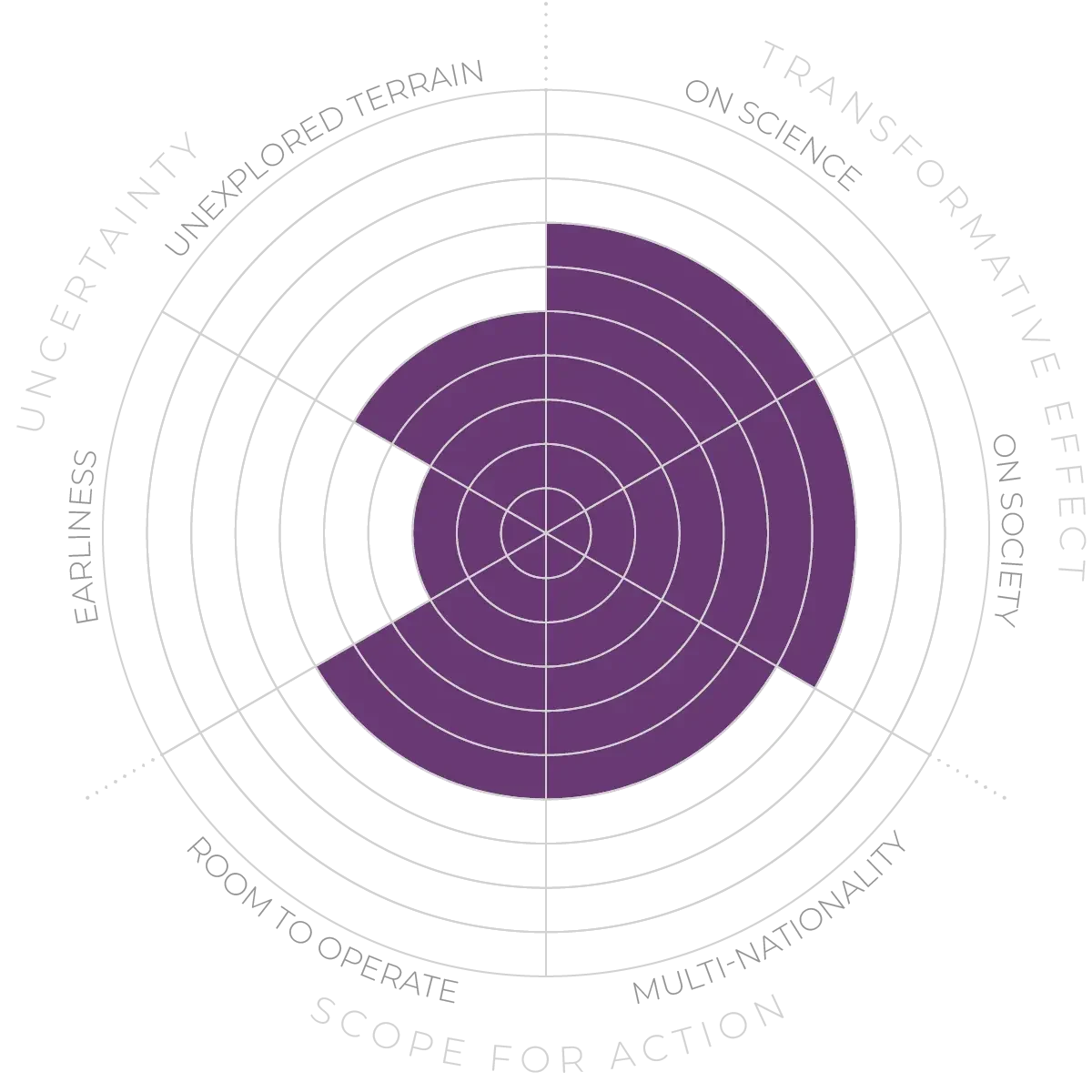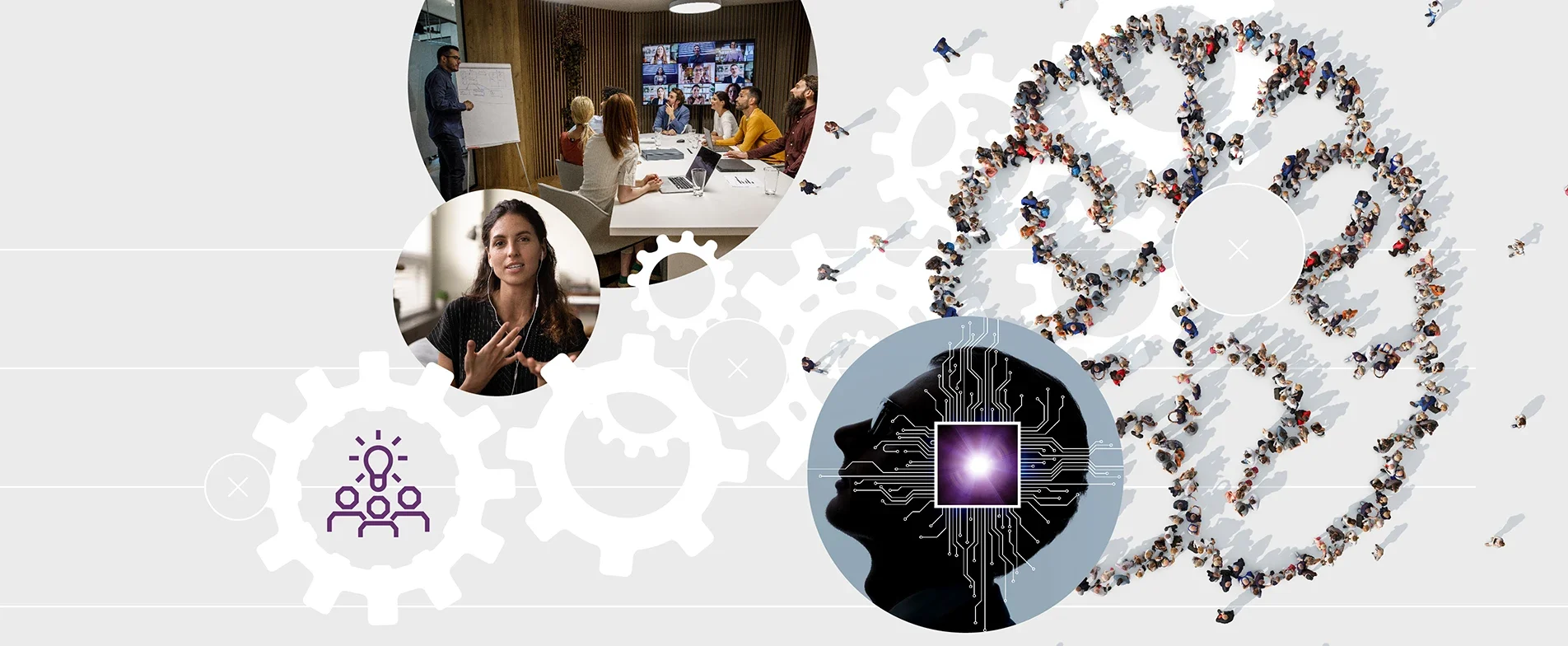Future Horizons:
10-yearhorizon
AI moderates discussions
25-yearhorizon
Brain interfaces augment human deliberation
This involves solving several challenges, including goal alignment, task prioritisation, progress tracking, maintaining attention, distribution of responsibilities and ensuring that deliberative processes are efficient and equitable. This is becoming increasingly complicated, as more fluid organisational structures mean team composition and structure is often dynamic20. Globalisation and the rise of hybrid work also means teams frequently work remotely and asynchronously, raising new challenges for group cohesion.21
Nonetheless, research into group dynamics is providing simple yet powerful insights into how to improve the CI of small groups. These include intermittent breaks in collaboration,22 boosting the variety of solutions explored23 and ensuring the right balance of cognitive diversity and gender.24,25 It is also laying the foundations for new tools to enhance team performance. These include real-time visualisations of how much effort members are putting in,26 information dashboards that summarise people's skills27 and chatbots that help teams allocate work based on members’ expertise.28
Recent breakthroughs in LLMs are also opening up the prospect of AI agents working alongside humans in hybrid teams.29 These agents could be a crucial tool for asynchronous collaboration, acting as a “shared brain” for the group and keeping team dialogue flowing even when members can’t speak directly. They could ultimately act as moderators, steering group deliberations to boost CI. Adding AI to teams isn’t a silver bullet, though, and there’s evidence it can degrade performance as often as improve it.30,31 This is driving researchers to think more deeply about how the CI of human-AI groups differs and how to harness it.32,33
Smarter teams - Anticipation Scores
The Anticipation Potential of a research field is determined by the capacity for impactful action in the present, considering possible future transformative breakthroughs in a field over a 25-year outlook. A field with a high Anticipation Potential, therefore, combines the potential range of future transformative possibilities engendered by a research area with a wide field of opportunities for action in the present. We asked researchers in the field to anticipate:
- The uncertainty related to future science breakthroughs in the field
- The transformative effect anticipated breakthroughs may have on research and society
- The scope for action in the present in relation to anticipated breakthroughs.
This chart represents a summary of their responses to each of these elements, which when combined, provide the Anticipation Potential for the topic. See methodology for more information.



